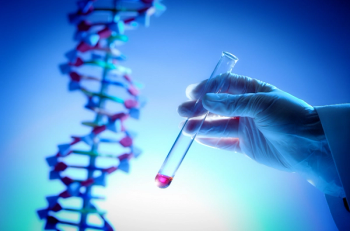
New Tool for Predicting Treatment Response to Checkpoint Inhibitors
A two-pronged algorithm, which includes an analysis for a gene signature and tumor mutational burden, may be a potential new tool for predicting treatment response to checkpoint inhibitors.
A two-pronged algorithm, which includes an analysis for a gene signature and tumor mutational burden, may be a potential new tool for predicting treatment response to checkpoint inhibitors (CPIs), according to researchers at Roswell Park Cancer Institute in Buffalo. They reported (abstract
In collaboration with
“While some patients will respond well to checkpoint inhibitors, many will see their tumors progress quickly, so giving them these treatments actually could hurt more than it helps,”
The researchers identified a set of 54 immune-related genes using expression data from whole transcriptome RNA-sequencing in 300 tumor specimens. They designed a sequencing test to measure both gene expression and tumor mutational burden from a population of 167 patients previously treated with approved checkpoint inhibitors. The researchers had complete treatment and response data available for 87 patients.
A biological 4-gene decision tree model was constructed independently based on machine learning. Next, the researchers employed a second biological decision tree that included the weighted average relative rank of the expression of multiple genes in 4 different immune functions, including immune cell infiltration, regulation, activation, and cytokine signaling.
This approach accurately reflected therapeutic response for 90% of patients. By comparison, an analysis based on positive PD-L1 immunohistochemistry results or high mutational burden status alone correctly predicted response in only 30% of cases.
“Currently, there are only a few primary immune biomarkers routinely evaluated prior to checkpoint inhibition therapy. We believe our panel of more than 50 markers will be sufficient to predict response in most if not all solid tumors, and are currently expanding the framework to a larger multi-institutional collaboration to confirm these initial findings,” Morrison told OncoTherapy Network.
Morrison said using this tool it may be possible to improve outcomes and also help eliminate the problem of patients receiving treatments that may offer little or no benefit. “We believe that evaluating a patient’s tumor with the immune response assay will help oncologists with clinical decision-making and prevent unnecessary treatments with checkpoint inhibitors, and avoid possible adverse events that have been reported with these therapeutic approaches.”
Newsletter
Stay up to date on recent advances in the multidisciplinary approach to cancer.





































